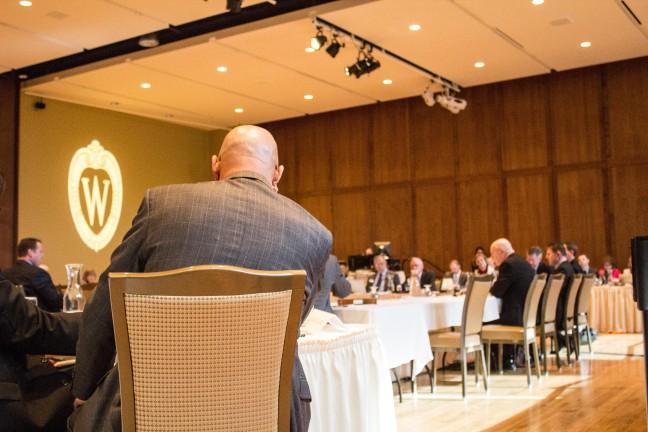More than 60 years ago the United States sat on the sidelines, watching as the world engulfed itself in the flames of war. Then, the attacks on Pearl Harbor occurred. America was shaken out of its isolationist habits. No longer were the days of solitude.
Admiral Isoroku Yamamoto remarked, “I fear all we have done is to awaken a sleeping giant and fill him with a terrible resolve.”
This giant awoke and showed the world its true potential. After the war, the U.S. could no longer return to its prior absence in worldly affairs. Instead, it continued to enhance its global presence, helping to rebuild its devastated international neighbors. The Marshall Plan, the Berlin Airlift, the World Bank and the International Monetary Fund were all successful efforts in getting Europe back on its feet again. The U.S. took the responsibility for rebuilding and sustaining the world upon its shoulders.
As an American born well after this time period, I can only experience such greatness through the retelling in books. It has been long since the days in which America was seen as the leading humanitarian nation. It seems the giant has once again fallen asleep.
Today, the U.S. designates 0.7 percent of its budget to foreign aid, a number which will be lower still once the sequestration budget cuts take effect. This amount is embarrassing when compared to the aid budgets of other countries – the Organization for Economic Co-operation and Development has ranked the U.S. at the bottom of its list of international development aid donors. How can a country with such a vast global presence take such little initiative in a globalized world?
Foreign aid is not merely a humanitarian effort. Rather, improving the developing world is an investment with exponential return potential. For instance, 45 percent of all U.S. exports go to the developing world, which subsequently has the highest economic growth rate. By aiding such countries, the U.S. would be creating and growing new trade markets. This is not just a prediction. We have seen the same thing happen time and time again throughout history. Many of the world’s economic powers were previous U.S. aid beneficiaries. The private sector agrees. Entrepreneurs like Bill Gates and many other CEOs have lobbied Congress to invest in the economies of developing nations – doing so would directly benefit the private sector and create U.S. economic growth.
Aside from the economic advantages, aiding developing countries would help stabilize global security. Former U.S. Secretary of State Colin Powell, former U.S. Secretary of Defense Robert Gates, and 50 retired U.S. generals have requested that Congress increase the International Affairs Budget to create non-militarized stability by fostering growth in insecure countries. It is no myth that such countries are breeding grounds for terrorist organizations. Educated, economically prosperous nations are less likely to plunge into the type of social unrest that Afghanistan went through following the Afghan-Soviet engagement in the 1980s. The U.S. can either continue to maintain the world’s largest military budget or it can reallocate funds to diversify its national security plan.
So why haven’t our politicians started to act upon these facts? The U.S. is arguably the most powerful country in the world with the most potential to enact change. Isn’t it time to once again take a leadership role and aid developing nations? Doesn’t it seem like the most viable stance in the ever-growing global community?
As a citizen concerned with the future of America as well as the rest of humanity, I believe we should once again take the responsibility of aiding developing countries upon our shoulders. As college students, our time to run the country is looming nearer every day. How will our generation be written about in the textbooks? Will our grandchildren wish to have lived during our lifetimes?
I want this country to once again be viewed as the most powerful country not because of the number of ships our navy boasts, but because of the number of wells we’ve built, not because of the number of countries we’ve gone to war with but because of the number of countries we’ve helped rise. We need to leave no mind unsure, leave no doubts or misinterpretations. We need to take a firm stance on the fight against poverty, one that someday will inspire words in a textbook. The beautiful part of all of this is that the U.S. possesses all of this already. We just need to do one thing. We need to awaken the sleeping giant.
To help poke the giant awake, use your right as a citizen to make your voice heard. Call our congressional representatives and tell them that the next generation of Americans wants to see increased foreign aid. Let U.S. Sen. Tammy Baldwin, U.S. Sen. Ron Johnson and U.S. Rep. Mark Pocan know that we want them to take our sentiments back to Washington and change the way America responds to poverty.
Steve Ticknor ([email protected]) is a junior at the University of Wisconsin.



















